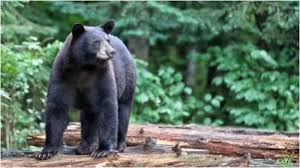Last July, nine family members became ill from a parasite disease brought on by undercooked bear meat, ruining what had seemed to be an ordinary family get-together in South Dakota. Who is at fault? Particularly, roundworm larvae that endured freezing—the kind that are found in bears. This occurrence emphasizes the significance of cooking wild game meat at the right temperatures, as described in a recent Centers for Disease Control and Prevention (CDC) article.
According to the report, a family member attended the reunion with bear meat from a black bear that was hunted in northern Canada. Before the meat was thawed and ready to make kebabs, it had been freezer for forty-five days. It’s possible that the family thought the freezing procedure would kill any parasites, but that wasn’t the case. The particular strain of roundworm in question, known by the common name Trichinella, has the potential to be resistant to freezing, especially in polar regions.
Eating these roundworm larvae resulted in the infection of six participants with trichinellosis. When eating tainted meat, symptoms can include nausea, vomiting, diarrhea, cramping in the abdomen, aches in the muscles, fever, chills, and puffiness around the eyes. These symptoms usually manifest within a few days to two months. The infection may even spread to the heart and nerve system in extreme circumstances.
All six of the people who got trichinellosis, fortunately, were treated quickly with albendazole, a drug that works well against parasitic worms, and they all recovered. This episode does, however, serve as a harsh reminder that when managing wild wildlife, correct food handling and cooking skills are essential.
“Persons who consume meat from wild game animals should be aware that adequate cooking is the only reliable way to kill Trichinella parasites,” according to the CDC research. As determined by a food thermometer, this entails making sure all meat cuts achieve an internal temperature of 160°F (71°C). For sure, you can’t get rid of parasites by only browning the skin of the meat.
A certified laboratory should test hunters’ wild game for trichinella, according to the CDC. Testing can offer comfort and avoid unfavorable circumstances like the one at the family gathering, even though it’s not a required procedure everywhere.
This outbreak also brings attention to the possible dangers of eating particular kinds of wild animals. When prepared properly, bear meat can be a tasty and healthy source of protein, but it is important to exercise caution because it is more likely to be contaminated with parasites than meat from conventionally farmed animals.
The CDC advises those who are not accustomed with managing wild game to seek advice from seasoned hunters or wildlife experts. In-depth information on safe handling and cooking techniques for wild game meat may also be found in a plethora of internet and local wildlife agency resources.
To conclude, there is an important lesson to be learned from the recent trichinellosis outbreak. Family get-togethers are supposed to be happy occasions for celebration and bonding, but if food safety precautions are neglected, they can become health hazards. Through adherence to suggested cooking temperatures, contemplation of trichinella tests, and self-education about the management of wild animals, we can considerably mitigate the possibility of parasite diseases and guarantee a secure and delightful encounter for all parties.




